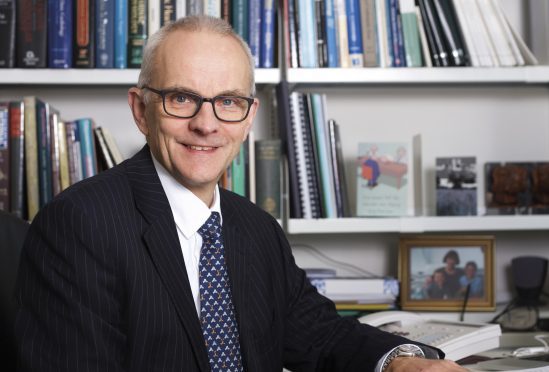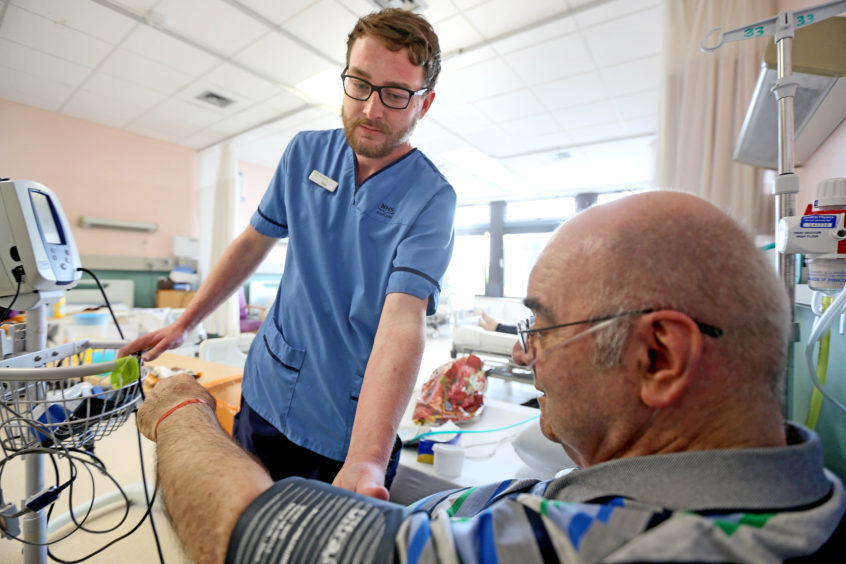It’s 19 months since Professor David Crossman – dean and head of the School of Medicine at St Andrews University – was appointed the new Chief Scientist for Health with the Scottish Government, and during that time the cardiologist has not wavered from his view that the NHS is a “huge success story”.
He thinks it’s an “amazing achievement” that the NHS has survived to provide health care free at the point of need and he thinks it ultimately “defines us as a nation”.
He describes as “extraordinary” what can be done for patients and what’s round the corner for previously untreatable conditions.
Thanks to research and development, he is amazed how many heart attack victims can now survive and go on to lead normal lives.
Statin drugs have been developed to tackle cholesterol. Cancer treatments are improving. Vaccinations for the likes of measles, mumps, rubella and polio are virtually taken for granted.
Digitisation of health care and the roll out of the genomics genetics revolution will undoubtedly continue bringing closer the day when everyone has their genome or genetic code on a chip.
But the price of that universality and new therapies is that it adds massive pressure to the system and is terribly expensive.
Professor Crossman believes there are five areas for optimism whereby research can continue making a real difference to the future of the NHS:
There’s a “real opportunity” for technology to be used to help an ageing population stay at home longer, and there’s got to be more early diagnosis of disease rather than dealing with costly end stage conditions.
Work has got to continue with a vengeance to prevent and treat cancer; A “big challenge” is dealing with dementia – a high cost, high burden condition that he sees as a “50-year project” to resolve and a “product of so many people living longer”.
The final all-encompassing area of importance for Professor Crossman is keeping up the pressure to drive discovery science.
This will create new insights that will help challenge dementia, cancer and other conditions.
“The hope is we’ve got some opportunities in Scotland in so-called genomics – or genetics – to help us to take forward development to think about disease differently – to understand different ways of treating disease and to get leverage on conditions that haven’t yet yielded to science,” he said.
However, it’s essential that the NHS remains true to its roots. He would also like to see clarity soon surrounding the uncertainties Brexit has brought to biomedicine in terms of workforce, regulations, pharmaceutical trade and research funding.
He added: “The NHS as an incredible thing which is seen with universal pride.
“We’ve got to make it work because that’s what people would expect us to do.
“By and large it is working – but people always expect us to do better.
“There are pressures but the urgent stuff gets done by and large.
“There are things we know could be done better with unfettered resource but I think an evidence based service gets delivered by and large.”











